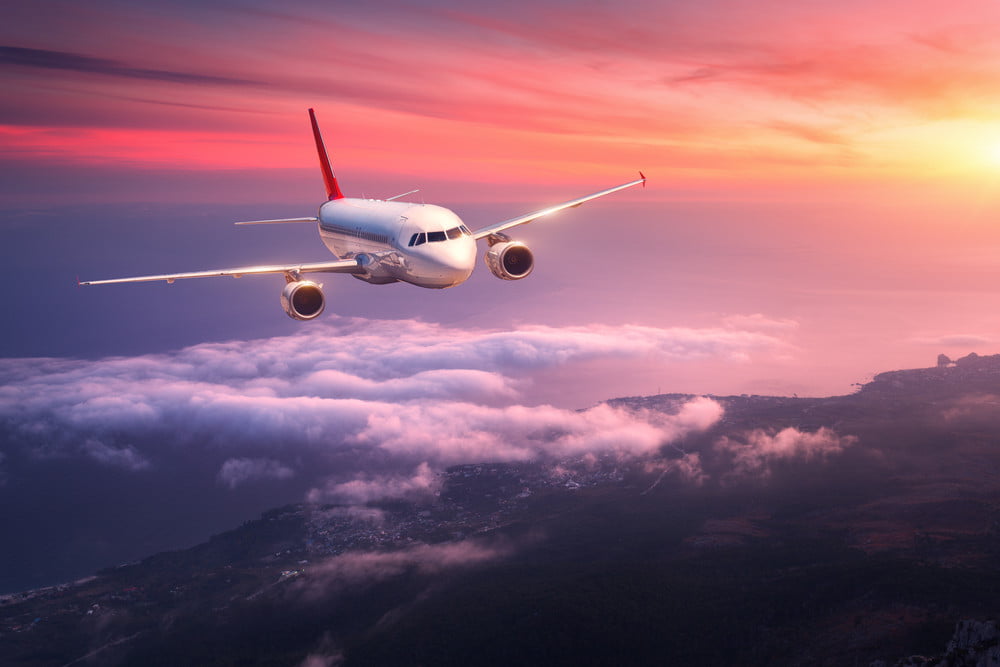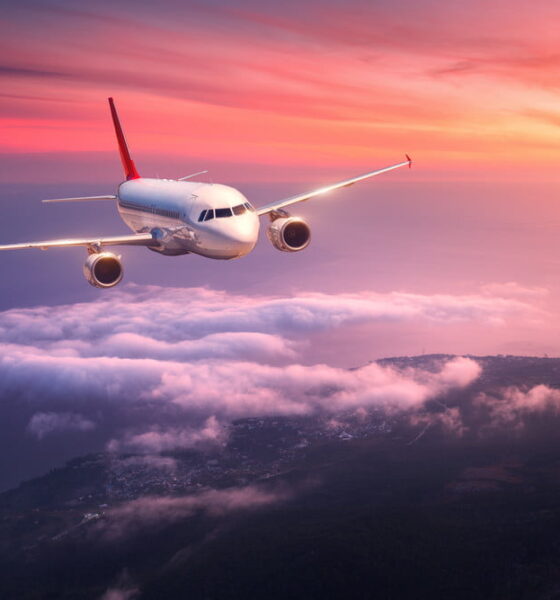

Editors Choice
Green Light To Green Flights: The Aviation Emissions Challenge
The advent of the coronavirus has ground much of the world to a halt for the last few months of 2020. While this period has clearly been a crisis from a health and economic perspective – it has also prompted a renewed focus on the environment.
Between March 24 and May 12, daily CO2 emissions in the UK were 36% below normal levels. They were still 27% lower than normal during the period between May 13 and May 31, when lockdown began to ease slightly.
The climate crisis has long been spoken about as something that requires drastic action – but it’s taken the drastic action required by this crisis to make people reassess their usual behaviour. People are wondering whether they really should return to ‘normal’, or whether this presents a fresh start to avoid slipping back into bad habits.
People have also used their time to think about reduced car use, to get better at planning meals to make smarter use of the food we buy and exploring how to switch to greener energy suppliers so that our working from home routine is better for the planet.
But there is an elephant in the room – namely, holidays. People across the country have been forced to abandon their plans for a 2020 getaway and are harbouring an overflowing sense of wanderlust that they’ll want to satisfy as soon as its safe.
But how does this chime with the times? While people might love to jet off on holidays, the harsh reality is that a transatlantic flight from London to New York generates about 986kg of CO2 per passenger – more than the emissions for average person in a whole year in 56 countries. For longer journeys, the numbers make even bleaker reading. Can people really continue to jet around the globe with a clear conscience? Does that behaviour render all of their efforts around the home meaningless?
The answer, it seems, might lie with a spot of innovation. Crises, after all, have a habit of forcing us all to come up with creative solutions to change the status quo. It’s with this desire for innovation that the UK Government has thrown down the gauntlet and created the Jet Zero Council. This body will be responsible for achieving the ambitious aim of net-zero carbon emissions for all flights.
Transport Secretary Grant Shapps recently announced the move, and explained: “The challenge is to make transport – currently our biggest emitter of greenhouse gases – part of the solution, not the problem. Take the aviation sector, which has had an impossible few months. Yet, despite the obvious challenges, there’s a real determination within the industry to have a greener re-start.”
Government officials will sit on the new Jet Zero Council, along with leaders from the world of aviation and the environmental movement. Shapps added: “This group will be charged with making net-zero emissions possible for future flights. Our goal – within a generation – will be to demonstrate flight across the Atlantic, without harming the environment.”
There’s clearly a long way to go, but the work will begin right away – with Lincolnshire firm Velocys now tasked with building a plant for aviation biofuels.
The news was welcomed by the Airport Operators Association. Chief executive Karen Dee said: “The creation of this advisory body will help to ensure Government and industry work in partnership to make net zero carbon emissions for the aviation industry a reality.
“Funding for sustainable aviation fuels will help to pump-prime an entirely new industry, generating new jobs and economic growth, while reducing emissions from international aviation.
“UK airports are doing all they can to reduce the carbon emissions from the operation on the ground, the announcement today will help industry meet its commitments in the sky as well.”
For now, passengers are only left with two options: cut back on-air travel or explore carbon offsetting schemes where they can fund reforestation or other environmental projects that deal with the fallout of pollution. If the Jet Zero Council can succeed, a third – and better – solution might be at hand to ensure that our holidays can follow the trajectory of many other post-crisis behaviours and be greener and less problematic for the future of the planet.


 Environment12 months ago
Environment12 months agoAre Polymer Banknotes: an Eco-Friendly Trend or a Groundswell?

 Features11 months ago
Features11 months agoEco-Friendly Cryptocurrencies: Sustainable Investment Choices

 Features12 months ago
Features12 months agoEco-Friendly Crypto Traders Must Find the Right Exchange

 Energy11 months ago
Energy11 months agoThe Growing Role of Solar Panels in Ireland’s Energy Future





























